
Otto Abels Harbach, born Otto Abels Hauerbach was an American lyricist and librettist of nearly 50 musical comedies and operettas. Harbach collaborated as lyricist or librettist with many of the leading Broadway composers of the early 20th century, including Jerome Kern, Louis Hirsch, Herbert Stothart, Vincent Youmans, George Gershwin, and Sigmund Romberg. Harbach believed that music, lyrics, and story should be closely connected, and, as Oscar Hammerstein II's mentor, he encouraged Hammerstein to write musicals in this manner. Harbach is considered one of the first great Broadway lyricists, and he helped raise the status of the lyricist in an age more concerned with music, spectacle, and stars. Some of his more famous lyrics are "Smoke Gets in Your Eyes", "Indian Love Call" and "Cuddle up a Little Closer, Lovey Mine".
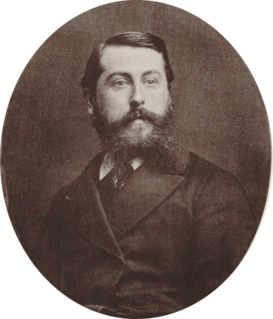
Clément Philibert Léo Delibes was a French Romantic composer, best known for his ballets and operas. His works include the ballets Coppélia (1870) and Sylvia (1876) and the opera Lakmé (1883), which includes the well-known "Flower Duet".

Harold Arlen was an American composer of popular music, who composed over 500 songs, a number of which have become known worldwide. In addition to composing the songs for the 1939 film The Wizard of Oz, including "Over the Rainbow", Arlen is a highly regarded contributor to the Great American Songbook. "Over the Rainbow" was voted the 20th century's No. 1 song by the Recording Industry Association of America (RIAA) and the National Endowment for the Arts (NEA).

Sigmund Romberg was a Hungarian-born American composer. He is best known for his musicals and operettas, particularly The Student Prince (1924), The Desert Song (1926) and The New Moon (1928).

Frank Heino Damrosch was a German-born American music conductor and educator. In 1905, Damrosch founded the New York Institute of Musical Art, a predecessor of the Juilliard School.
John Alden Carpenter was an American composer.
Milton J. Franklyn(néMilton Julius Frumkin; September 16, 1897 – April 24, 1962) was a musical composer and arranger who worked on the Warner Bros. Looney Tunes animated cartoons.
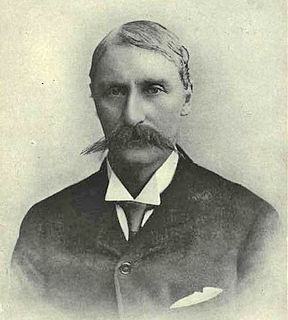
Alfred Cellier was an English composer, orchestrator and conductor.

John Frederick Coots was an American songwriter. He composed over 700 popular songs and over a dozen Broadway shows. In 1934, Coots wrote the melody with his then chief collaborator, lyricist Haven Gillespie, for the biggest hit of either man's career, "Santa Claus Is Comin' to Town." The song became one of the biggest sellers in American history.

Edward Solomon was an English composer, conductor, orchestrator and pianist. He died at age 39 by which time he had written dozens of works produced for the stage, including several for the D'Oyly Carte Opera Company, including The Nautch Girl (1891). Early in his career, he was a frequent collaborator of Henry Pottinger Stephens. He had a bigamous marriage with Lillian Russell in the 1880s.

Hans-Werner Janssen was an American conductor of classical music, and composer of classical music and film scores. He was the first New York born conductor to lead the New York Philharmonic. For his film work he was nominated for six Academy Awards.

John Thomas Douglass (1847–1886) was an American composer, virtuoso violinist, conductor and teacher. He is best known for composing Virginia's Ball (1868), which is generally regarded as the first opera written by a Black composer. The work is now lost, and his only extant composition is The Pilgrim: Grand Overture (1878) for piano. His biography from James Monroe Trotter's Music and Some Highly Musical People (1878)—in which The Pilgrim survives—reports that he wrote many now lost pieces for piano, orchestra and particularly guitar, which he was known to play.

Edgar Stillman Kelley was an American composer, conductor, teacher, and writer on music. He is sometimes associated with the Indianist movement in American music.

John Joseph Braham, Sr. was an Anglo-American musical theater conductor and composer who introduced the works of Gilbert and Sullivan to the United States and composed some of the earliest original orchestral scores for silent film.
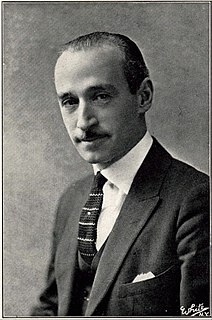
Robert Hood Bowers was an American composer, conductor and musical director of operettas and stage musicals, and a conductor and musical director for radio. He composed the musical scores for some of the most popular silent movies, including Aloma of the South Seas and A Daughter of the Gods.

Dorothy Donnelly was an actress, playwright, librettist, producer, and director. After a decade-long acting career that included several notable roles on Broadway, she turned to writing plays, musicals and operettas, including more than a dozen on Broadway including several long-running successes. Her most famous libretto was The Student Prince (1924), in collaboration with composer Sigmund Romberg.
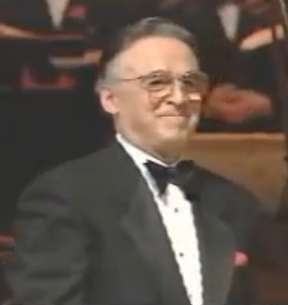
Nicholas Perito was an American Hollywood composer and arranger and, for 40 years, the closest collaborator of singer Perry Como.
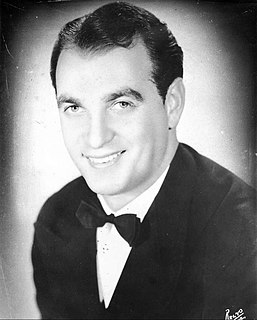
Mitchell "Mitch" Ayres was an orchestra leader, music arranger, composer and performer. He is best known for his many years of work with Perry Como on radio, records, and television and as the musical conductor for The Hollywood Palace.
Frédéric Louis Ritter was a French composer, choral conductor, teacher, and author.
Lilian White Spencer was a well-known Colorado poet. She was born in 1876 in Albany, New York. She was the fifth of nine children of Frederick W. and Catherine (McGurk) White. At the time of her birth, Spencer's father was a writer for and part owner of the Albany Union. He had entered the field of journalism shortly after his marriage and during the early years of his career wrote for the New York Sun and edited the Albany Express. Eventually the family left New York and moved to Denver, Colorado. Frederick White became famous in the West and throughout the country as an editorial writer, critic, and essayist for the Denver Post, under the initials F.W.W. Spencer followed her father into journalism after attending a series of French convent schools from which she graduated at age 15. She worked briefly with him at the Denver Post and later held a civic job for a few months before she married George Soule Spencer and left Denver.














